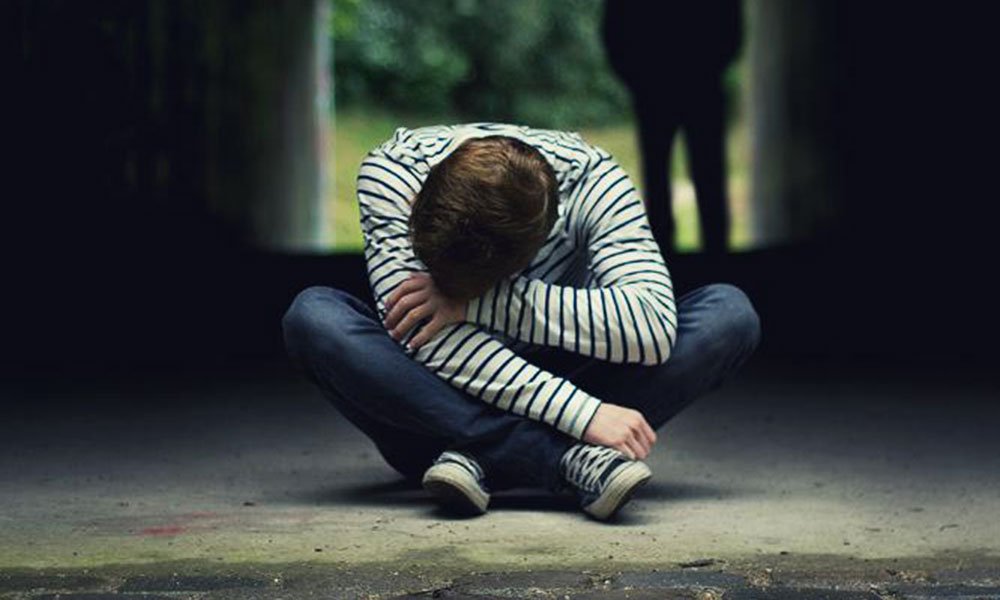Today we continue discussing how to deal with the fallout when our Christian leaders turn out to be unfaithful, sometimes following decades of cover ups. Here's a map of this series, to help you orient yourself:
1. Is Christian faithfulness impossible?
2. I'm so disheartened. What can I do?
3. I'm so heartbroken. How do I deal with this?
4. I'm so furious I can't think straight. How do I tackle this?
6. How do I protect myself from sinning like them?
7. How can I help myself heal?
8. How can I deal with my other questions?
Let’s look at the next question…

7. How can I help myself heal?
In the West, we tend to focus on individuality; we’re not used to a social interconnectedness that defines our identity, the way 2/3 of the world experiences it.
We are knitted together in the body of Christ. That pain that we feel when another Christian sins? That’s real. When we’re betrayed by the faithlessness of our leaders, we may have a hard time understanding why the wound seems to go so deep.
The Bible tells us that "there are many members, but one body." [1] Each of us exists in community, interconnected, needing the other parts. We bring our different personalities and abilities, strengths and weaknesses into the equation. "And the eye cannot say to the hand, 'I have no need of you'; or again the head to the feet, 'I have no need of you.'" [2] We don't have the option of discarding body parts that are weak or inconvenient. We are to esteem each other, encouraging and lifting each other up, showing each other dignity and honour rather than categorizing each other as "worthy" and "less worthy".
Contrary to Simon and Garkunkel's declaration, no Christian can be an island unto themself. God didn't create us that way. He made the body so that Christ would be our head, making decisions and guiding the workings of the rest of the body; He made us "so that there may be no division in the body, but that the members may have the same care for one another. And if one member suffers, all the members suffer with it; if one member is honored, all the members rejoice with it." [3]
When the toe gets stubbed, the whole body jerks back and cringes with the toe. When the eye gets poked, the hands instinctively raise to protect it.
When one of us hurts, we all hurt with the one. When one of us sins, we are all affected by it. This brings us to an important principle:
Sin is never private.
We may think we're not hurting anyone else when we sin, but this is another of the sin-virus's deceits—the way it hooks onto our spiritual cell structure and gets through our outer membrane, past our natural defences. Just like a virus in the physical world, it masquerades as something relatively benign, concealing its deadly effects.

Soon enough, the contagion spreads to the next cell, and the next, and the next. It's virulent. It mutates. For the original host, it may be outright sin. For the host's neighbour, it might be temptation to follow suit. For that neighbour's neighbour, it might be severe discouragement at the sins that have spread within the body. For the next, it might be outright sin again. (Soon the discouraged member may be surrounded by sin.)
Do you see how pernicious the sin-virus can be? Viruses don't just take over cells. They damage them.
We've talked a little about why we're damaged when other people sin. Now let's take a look at the nature of the damage itself.
A relatively new term, moral injury is "a disruption of our personal understanding of morality"[4], occurring "when someone commits an act, is party to an act, or fails to prevent an act that violates their deeply held moral values." [5] This sort of injury is not one that can be addressed using a splint or medication. Its origins and effects are in the spiritual realm. [9]
- Soldiers often experience moral injury: a person who under normal circumstances wouldn't hurt a fly may kill another human being in battle.
- Moral injury is often encountered by people who are innocent of violence, like the lone physician at a remote hospital who has to choose which dying child to operate on first, knowing the other one will probably pass away during the wait.
- Moral injury is often linked with betrayal. Not only does a person experience moral injury when she betrays her friend, but the betrayed friend will also experience a moral injury. The mistrust, disorientation, and confusion we experience after being betrayed are all symptoms of moral injury. [4]
Because our reputations are linked through our shared identity in Christ, when our leaders engage in shameful behaviour, we may feel a sense of shame simply by association. We may feel a sense of shame for having been duped by their schemes. This is another symptom of moral injury.
Shame loves the shadows. When we begin to experience shame, many of us tend to hide our thoughts and feelings away. Bringing them into the light is too painful, too vulnerable, too threatening. But hiding our shame only empowers it. Shame feeds on secrecy, on unexamined thoughts and emotions, on itself.
Unless we've participated in our leaders' sin or coverups, shame is not ours to bear. When we hide away our shame in the locked boxes of our minds rather than facing it, we are internalizing their shame.
This is not the life that Jesus has planned for us. He said, "The thief comes only to steal and kill and destroy; I came that they may have life, and have it abundantly." [6] One of the thieves that loves to steal, kill, and destroy is shame. It is one of Satan's favourite weapons because it immobilizes us in torment when left unchallenged.
But take courage! "In all these things we are more than conquerors" [7] because God "gives us the victory through our Lord Jesus Christ." [8] Putting on the armour of God helps. Working through trauma in therapy helps us to destigmatize shame and face it head on. We don't have to be defenseless when we encounter spiritual attacks of shame.
It is important that we recognize "the effects of moral injuries may accumulate over time." [9] This is especially pertinent if we've encountered spiritual abuse in past. If we have, we will tend to feel other spiritual abuses more deeply, whether they're direct or indirect (i.e., hearing news of abuse in the church). Much of the amplitude of our reactions is tied to the cumulative nature of our own moral injuries. This makes it even more important to take intentional steps towards healing.
So, how do we heal? How do we repair the damage? One helpful article on moral injury [10] gives these suggestions:
- A. Lament
I did a double take when I was reminded of this one! We talked about methods of lamenting in part three of this series. Please feel free to click on this link for a refresher (see suggestions C and D there).
- B. Get away from the toxin(s)
Much as we might feel tossed about on the waves of other people's actions and decisions, we have the ability to choose what we expose ourselves to. This may mean stepping away from the news for a while. It might mean stepping out of gossip, doom scrolling, or judgmental attitudes.
Toxins have many potential delivery sites. We don't have to tie ourselves to a toxic IV drip. Find where the needle has entered your spirit, rip it out, and do what you have to in order to detoxify. Don't allow yourself to become addicted to outrage or gossip. Find the detoxification regimen that works best for you. It might be going on a spiritual retreat. It might be memorizing loads of Scripture. It might be something else entirely.
You are not helpless. Don't let Satan tell you that you are.
- C. Work to redeem the situation
We've all heard plenty about post-traumatic stress. This is a natural reaction to traumatic events, including abuse.
What we hear less about is post-traumatic growth. This phenomenon occurs when we are able to transcend what has happened and regain a sense of control through creating meaning out of our experiences.
The Bible points to our potential for growth after suffering. Here are a two of my favourite verses:
(Romans 5:3–5)
tribulation brings about perseverance; and perseverance, proven character; and proven character, hope; and hope does not disappoint, because the love of God has been poured out within our hearts through the Holy Spirit who was given to us.
(1 Peter 5:10)
After you have suffered for a little while, the God of all grace, who called you to His eternal glory in Christ, will Himself perfect, confirm, strengthen and establish you.
So how can we turn our helplessness into meaning-making?
Start with trusting God. Then find some way to express that trust.
For me, meaning-making has taken the form of writing this series. These blogs haven't been about me telling you what to do. They have been about me working through my own heartbreak, discouragement, anger, obsessive thoughts, and so on—getting back to the basics, and then sharing what I've been learning with you. In the sharing, I've regained my sense of equilibrium, and found a great deal of peace and freedom. I've leaned in to my spiritual gifts of teaching and encouragement. Helping others has helped me.
For you, the answer might be something different than a blog series, but I'd encourage you to search out what fits with your spiritual temperament and dig in. Meaning making is always an act of construction, and it's always worth it!
- D. Share the burden
When we're feeling the burden of moral injury, it's important that we share it with others. This doesn't mean we gossip about it. It does mean that we don't let our sense of false shame isolate us.
Never was that old Bible verse ever so pertinent:
And let us not neglect our meeting together, as some people do, but encourage one another...
(Hebrews 10:25, NLT)
Meeting together, engaging in mutual healing, becoming instruments for each others' healing, praying for each other, using our unique strengths and abilities to edify each other—these are the aspects of our body-of-Christ-ness that make us stronger together than we could ever be apart. So let's press on to the better things that Jesus has planned for us. Let's joyfully embrace post-traumatic growth, and allow our Heavenly Father to fertilize our plants of faith and grow them to heights and lengths and depths we never thought possible.
All for Jesus.
Next time, we'll conclude our series by looking at what we can do when other questions crop up on this topic—questions I might not have answered here, but that weigh us down in our struggle.
NOTES
Unless otherwise noted, all scriptures are taken from the NASB version.
[1] 1 Corinthians 12:20.
[2] 1 Corinthians 12:21.
[3] 1 Corinthians 12:25–26.
[4] Jim Ritchie, “Moral Injury in Healthcare Missionaries: Spiritual Solutions to a Spiritual Problem,” MedSend, 2024, https://medsend.org/wp-content/uploads/2024/08/Moral-Injury-Booklet.pdf, p. 8.
[5] Ibid, p. 7.
[6] John 10:10.
[7] Romans 8:37, ESV.
[8] 1 Corinthians 15:57, ESV.
[9] Jim Ritchie, “Moral Injury in Healthcare Missionaries: Spiritual Solutions to a Spiritual Problem,” p. 9.
[10] Ibid, p. 17.
(Picture source 1: lady)
(Picture source 2: virus)










